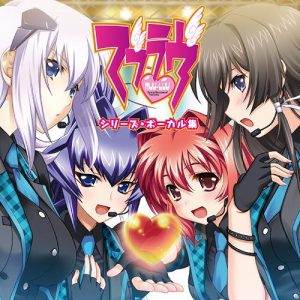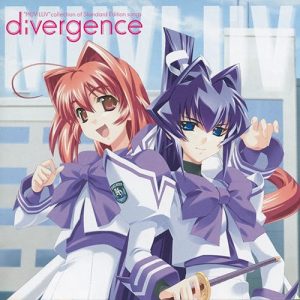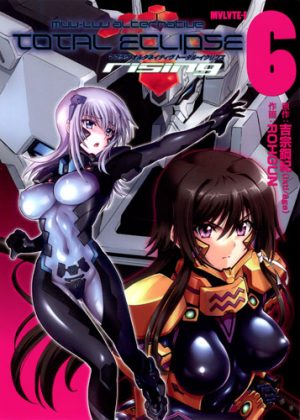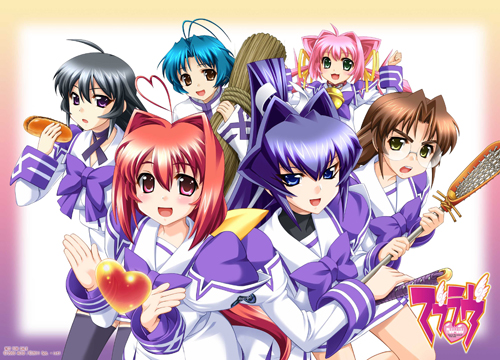
Originally, these articles had a simpler premise. I was going to write on the qualities that made Muv-Luv a classic. However, times have changed, and what was once considered innovative might be conventional now.
It’s been more than a decade since the original, and with time, readers have become exposed to more tropes and conventions. With the modern audience, comes a different set of expectations. Would a modern audience still perceive Muv-Luv favorably then? This line of thinking intrigued me and made me approach Muv-Luv with a question:
“Is Muv-Luv’s story still impactful for a modern audience--does it have a timeless quality of a classic?”
While this can’t be answered until after Alternative, this article will be the start of that process. Thus, this article will contain spoilers to help explain my thoughts. As I piece together my observations, I hope my writing will unveil some points of interest alongside showcasing the qualities of Unlimited’s story.
Implications of Its Story: The Importance of Extra within Unlimited
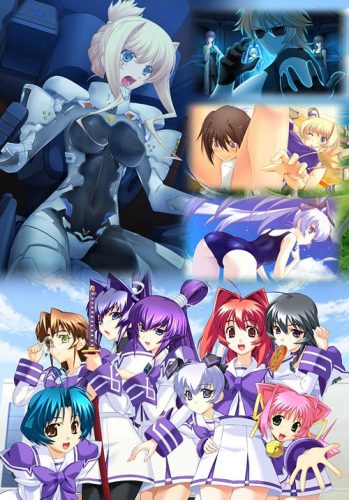
Unlimited is a transitional story; it hints at a bleak future (Alternative) while reminding readers of its roots (Extra). Unlimited’s position is arguably a difficult one, stuck between two tones and atmospheres. This shift between genres is considered one of the major highlights of the Muv-Luv trilogy.
After leaving his house, Takeru is given a better perspective of the world: destroyed, shattered, a shell of its former self. Despite this, Takeru occupies himself with childish thoughts. As a jarringly upbeat track plays (aptly, a song from Extra), we realize Takeru doesn’t care about his house. The one thing on his mind is the mech that crashed into it.
Not his childhood friend, Sumika. Not his betrothed fiance, Meiya. Not Chizuru, Miki, Kei, or even his parents. None of them come to his mind. To him, this ruined world is unimportant. It’s just a dream.
The stark contrast between the situation and Takeru’s thoughts addresses one of my concerns about Extra. By participating in the conventions of a romcom/harem story, the focus is logically on its marketable heroines. Unsurprisingly, Extra is very much a story about its female cast.
However, Takeru’s character didn’t develop alongside the heroines. At times, it felt unfathomable why characters adored him. In the main routes, this was explained by a conventional idea, the childhood promise: marriage. But is such an explanation reason enough? It’s illogical. His specialness felt contrived, a product of being a protagonist, not the quality of his character.
These ideas get tested throughout Unlimited, questioning the validity of Takeru’s “specialness” while giving readers a better understanding of romcom conventions. This validates people’s reading of Extra as a parody--but I also wondered, “Was Unlimited also a harsh critique of its past conventions?”
The Difficulty of Balancing Tone
Unlimited is a story with great ideas and a heavy burden. Unlimited still retains the Extra’s quirky comedy. However with a new setting comes new obligations. The world is distinctly different, and Unlimited explains with lengthy exposition. This typically comes in the form of Yuuko, the Commanding Officer, explaining the world to our protagonist.
Fortunately, Unlimited preserves an impressive level of excitement in these passages. However, there are times when this balance feels tenuous. It’s at these points that Extra’s roots feel unwarranted.
One egregious example takes place after Takeru gets bitten by a snake. While the scene shows his incompetence, the fanservice scene following it was unnecessary and poorly placed.
When given further context, this runs contrary to the buildup after the Beta attack on Japan--a scene where Takeru faints from fear. Directly afterwards is the scene at the gun range where he resolves himself to become better--and a little later is the dreaded snake scene.
It’s plausible that the order of these events are intentionally subversive. After all, this would further show Takeru's flaws. The unfortunate problem is it messes with tension and the dramatic arc of the story. Luckily, Unlimited’s story is filled with ominous implications. Much of it sets up a foreboding future to come, managing to intrigue more often than not.
Takeru’s Development: Purposeful or Unintended?
Whereas Extra focused on its female cast, Unlimited is very much Takeru’s story. His spoiled nature, his selfishness, his lack of compromise, and even his rigid style of communication are forced into the light. In a world where humanity's exctinction is at stake, a new setting reveals his flaws.
Despite the hammered-in lessons of Extra, the importance of choice, Takeru has not embodied them. In fact, quite the opposite. He’s literally forgotten the ending of Extra. Whether this is a retcon or some decision to have an open-ended finale for Extra remains to be seen. However, it’s important to recognize that, at least in harem anime, a status quo ending--one where the protagonist makes no decision--is not atypical.
At this point in time, Takeru seems a far cry from a hero. His fear overtakes him at critical moments. He fails test after test as a soldier. Unlimited spares no moment to show how unfit Takeru is as a soldier. Until…
Takeru pilots a TSF.
However contrived his “specialness” was in Extra, he retains that quality as a mech pilot, a fact shocking to his superiors. It seems illogical how someone so disconnected from (their) reality is able to use humanity’s most complex weapon.
His skill as a Valgern-On gamer gives him this luxury. To him, the TSF is an exciting new toy. He plays with them as if they were a game. The question remains still: when lives are at stake, can he fight with one? Whatever the truth may be, Unlimited paints a troubling picture:
Even armored plating cannot hide the child who’s inside.
Final Thoughts
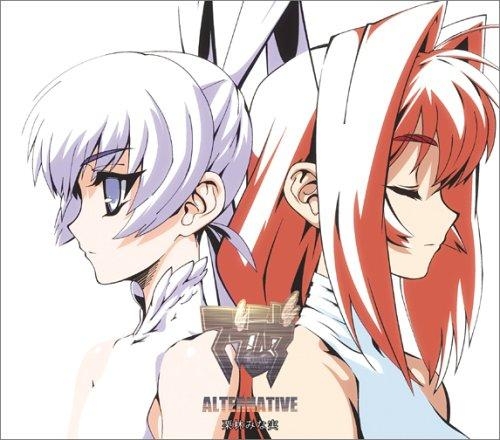
Muv-Luv: Unlimited sets expectations high, and propels Muv-Luv into a realm beyond the stars. While much of the creative decisions still remain to be explained, there is more to Muv-Luv than its initial innocent exterior. In the next article, I’ll be focusing on Muv-Luv:Alternative, the story that pushed the series into popularity.
Recommended Post
A Retrospective Reading: Muv-Luv in 2019 Part 1
Recommended Post
A Retrospective Reading: Muv-Luv in 2019 Part 3
Recommended Post
A Retrospective Reading: Muv-Luv in 2019 Part 4
Recommended Post
A Retrospective Reading: Muv-Luv in 2019 Part 5
Recommended Post


